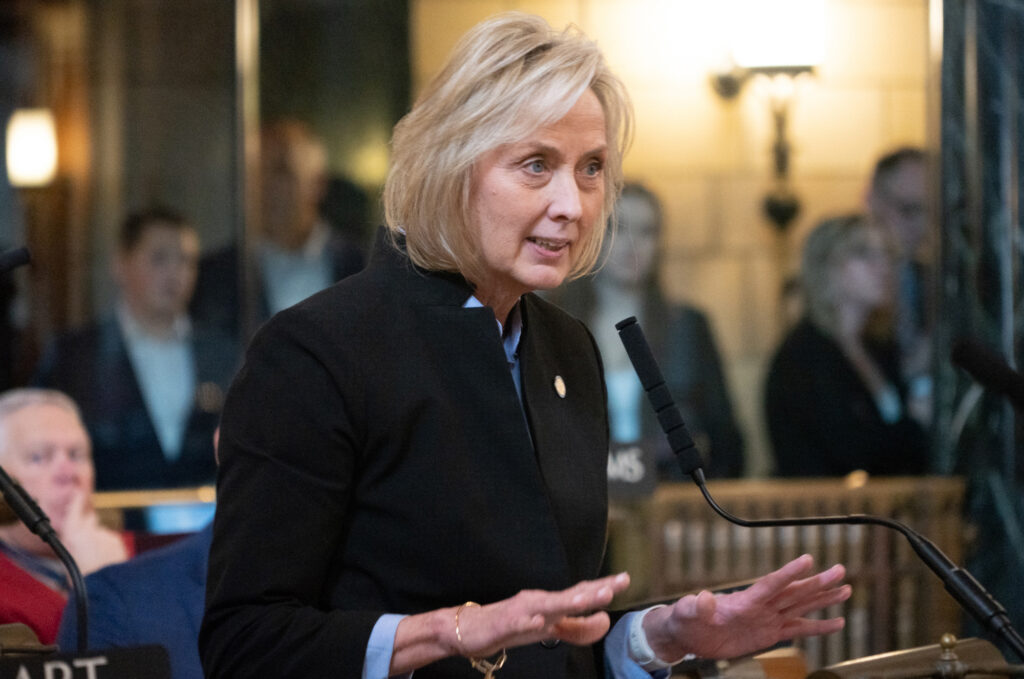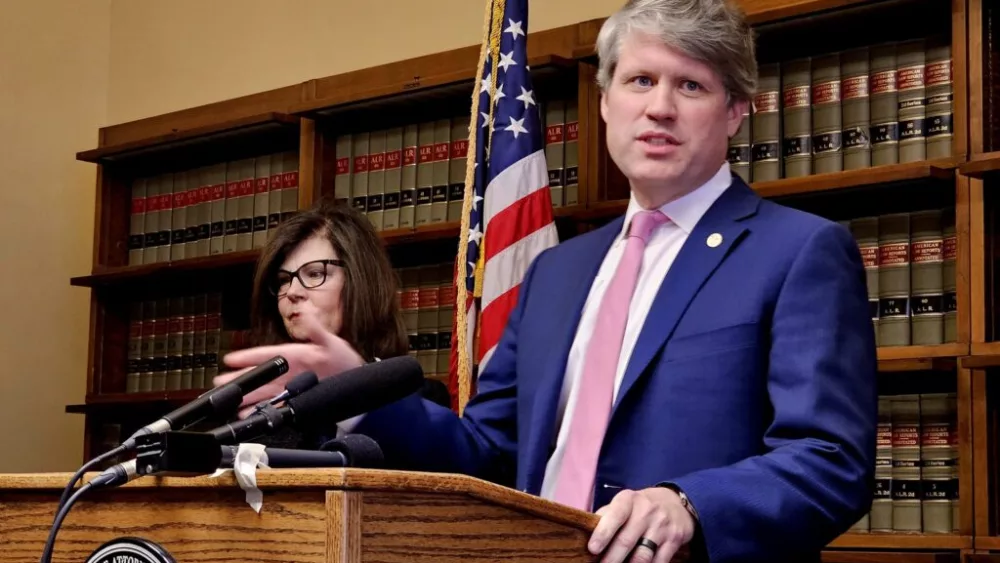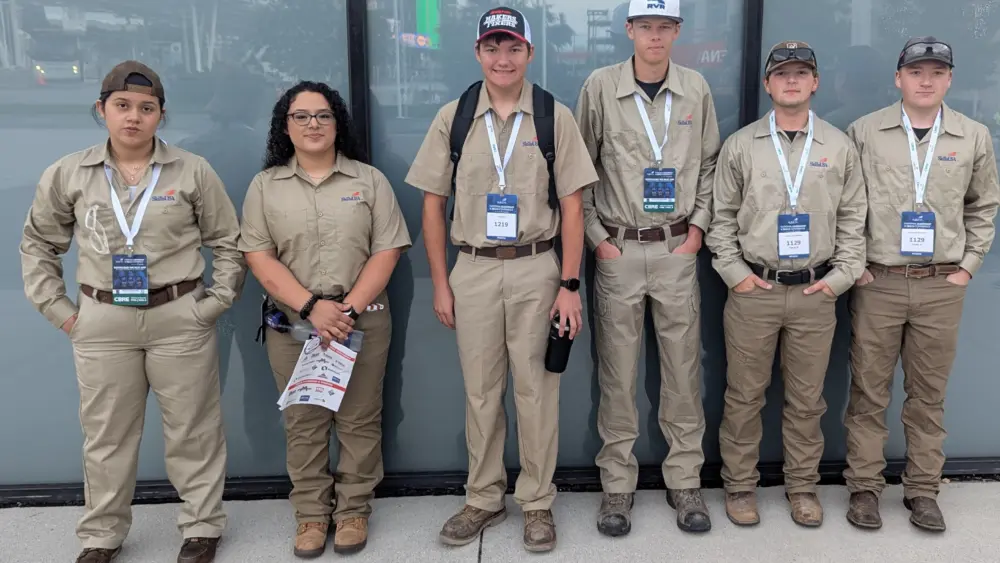
LINCOLN — An often funny and sometimes teary tradition in the Nebraska Legislature is paying tribute, in floor speeches, to departing state senators near the end of the two-year session.
On Thursday, lawmakers gave short testimonials to their 15 colleagues who are serving their final regular session in the one-house Unicameral. Thirteen are departing due to term limits, two chose not to seek re-election.
(And, of course if there’s a special session this summer on taxes, they’ll be back for one more round of debate. Their terms run out in January.)
Ten Republicans, five Democrats leaving
Of the departing, 10 are registered Republicans and five are Democrats in the officially, non-partisan Legislature, where 33 of its current 49 members belong to the GOP.
The 2024 elections will determine if Republicans retain a filibuster-proof majority.
These senators survived the COVID-19 pandemic — during which the Legislature took a historic pause and later worked behind clear plastic partitions — and doled out an unprecedented amount of federal COVID funds. Some landmark legislation passed during their tenure, including allowing “constitutional carry” concealed weapons and a long-sought, albeit phased-in, reduction in state income taxes.
It was a common joke during the tributes that this class also “survived” the turbulent 2023 session, which saw an almost session-long string of filibusters over the explosive issues of abortion rights and restrictions on gender-affirming care.
By comparison, the 2024 session seemed calm, with more respectful debate, even though there were filibusters.
Term limited
The senators leaving due to term limits:
Joni Albrecht of Thurston. A leading advocate for a ban on abortion, she unsuccessfully pushed a bill last year to ban abortion after a fetal heartbeat was detected, about six weeks of gestational age.
Albrecht brought a unique perspective of serving a rural legislative district, but also representing, in the past, suburban Sarpy County as a county commissioner.
Carol Blood of Bellevue. Known for her feisty floor speeches that began with “fellow senators, friends all,” she often railed against unfunded mandates and pushed legislation for the military workers and veterans in her urban district. She was also a leading advocate for greater state action in addressing the environmental disaster caused by the AltEn ethanol plant, which closed leaving huge piles of pesticide-coated waste grain behind.
She is seeking to extend her political career, running as a Democrat in eastern Nebraska’s 1st Congressional District.
Bruce Bostelman of Brainard. He could be called “Broadband Bostelman” for his constant push for expansion of high-speed internet into rural areas, including to his rural home.
He recently served as chair of the Natural Resources Committee and this year, got a bill passed to push companies to expand broadband services or risk losing grant funds.
Tom Brewer of Gordon. The “colonel” — a decorated military veteran and expert marksman who served several tours in Afghanistan — was the Legislature’s most fervent advocate for gun rights.
He won passage of a law to allow carrying of concealed weapons without a state permit or training class, and, as chair of the Government, Military and Veterans Affairs Committee, oversaw enactment of the state’s voter ID laws.
Steve Erdman of Bayard. Erdman, who often labeled his speeches as “common sense,” was known for frequently “calling the question” during floor debate and voting “no” when a “call of the house” motion was filed to summon all senators back to the legislative chambers. As a tribute, lawmakers en masse voted “no” on a motion to call the house Thursday.
Erdman labeled the annual attempts to lower property taxes in the Unicameral as “putting a Band-Aid on an amputation,” and pushed a novel alternative — replace all taxes with the “EPIC Option Consumption Tax.” He followed his son, Phil, in serving a Panhandle district in the Unicameral.
Steve Halloran of Hastings. There were several “short” jokes in the tribute to the short-in-stature senator, including that he served eight “short” years.
Halloran chaired the Agriculture Committee and won passage of a resolution calling for a “Convention of the States” to amend the U.S. Constitution. This year, he was given a letter of reprimand from legislative leaders for a vulgar floor speech about a violent rape, which he later regretted but also defended as illustrating the materials present in some school libraries.
Lou Ann Linehan of Elkhorn. The senator, who previously served as a chief of staff for then-U.S Sen. Chuck Hagel, proved just as adept at crafting deals and passing bills in a state legislature.
Described as “persistent,” “fierce” and even “scary” in negotiations, she won passage of Nebraska’s first “school choice” law and bills to retain teachers and improve student reading proficiency. A long-sought reduction in state income taxes came under her leadership as chair of the Revenue Committee.
John Lowe of Kearney. As chair of the General Affairs Committee, Lowe handled issues related to slot-machine like “skill games” alcohol sales and the advent of legal casinos in the state.
He pushed this year for a measure to make elections for public power districts partisan affairs, arguing that voters would know more about who they were voting for if they ran under their political party.
Mike McDonnell of Omaha. Lawmakers joked that a rule change this year to restrict the number of bills one senator could introduce each session at 20 was the “McDonnell Rule,” given that he introduced 66 bills this session.
A member of the Appropriations Committee, McDonnell was able to steer millions of dollars to “shovel ready” projects across the state. He made news this year by switching his party registration from Democrat to Republican, and is widely expected to be a candidate for Mayor of Omaha.
Tony Vargas of Omaha. Described as a “thoughtful and pragmatic” senator, Vargas used his seat on the Appropriations Committee to seek funding for affordable housing programs.
He also advocated for food trucks and restrictions on solitary confinement and predatory lending. This year, Vargas, a Democrat, is taking a second run at election to the U.S. House of Representatives in Omaha’s District 2.
Lynne Walz of Fremont. A former teacher, Walz focused much of her career on education bills, and most recently, in improving security of Nebraska schools amid school shootings in other states. She spoke with authority about her experience in the classroom and as a former school board member.
A Democrat, she ran unsuccessfully as a lieutenant governor candidate on a ticket with State Sen. Bob Krist in 2018.
Justin Wayne of Omaha. An attorney and master of the rules, Wayne could grind floor action to a halt with a surprise motion to kill or reconsider a bill — mostly to make a political point. The chairman of the Judiciary Committee, he fought for criminal justice reforms in hopes of reducing overcrowding in state prisons.
He was a key player in steering millions of COVID-19 dollars to his North Omaha district for economic development, and an important vote, as a former member of the Omaha School Board, in passing the state’s “Opportunity Scholarship Act” fund vouchers to attend private schools.
Anna Wishart of Lincoln. A long-time member of the Appropriations Committee, Wishart was able to work across the aisle to gain additional funding for mental health care, and was a consistent advocate for increased rates for providers of social services.
Wishart has been one of the leading advocates for legalization of medical cannabis, introducing bills in the Unicameral as well as leading signature drives to place the issue on the statewide ballot.
Opting out
Senators forgoing a run for re-election:
Fred Meyer of St. Paul. Meyer was appointed to the Legislature in November of 2023 to fill out the term of State Sen. Tom Briese, who resigned after being elected State Treasurer.
Described as a “gentleman farmer,” Meyer’s background in agriculture and as a former member of the State Board of Education proved to be assets during his service.
Julie Slama of Dunbar. Slama, who was first appointed to the Legislature in January of 2019, was a fierce advocate for restrictions on abortion and greater protections against workplace harassment for senators and staffers. Slama, 27, was the third youngest member to ever serve in the Unicameral when appointed.
She completed a law degree, got married and had a child while serving in the Legislature, and turned down a re-election bid this year to focus on her growing family.






